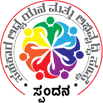Plagiarism is the practice of taking someone else’s work or ideas and passing them off as one’s own. It is an act of copying or reproducing it without acknowledging the source and as such it is a form of academic misconduct that undermines public trust in the quality and integrity of academic and/or research output. Plagiarism, whether deliberate or through negligence or ignorance, is a serious violation of conduct in any environment that values integrity, respect and fairness.
Guidelines
- The authors are expected to ensure that their work is original and has not been previously published in any form. They should cite all sources and give appropriate credit for any ideas or information that are not their own.
- Maintaining wording that is too close to the original source is not acceptable.
- Any instances of plagiarism, whether intentional or unintentional, will be taken seriously and will result in rejection of the submission or retraction of the publication.
- The journal uses plagiarism detection software to check all submissions for similarity and will follow up on any potential issues.
- If a paper is found to contain plagiarism after it has been published, the article will be retracted and the author(s) will be held responsible.
- The authors are also responsible for ensuring that all images, tables, and figures used in the paper are either original or have been properly cited and attributed to their source.
- By submitting their work to our journal, the authors acknowledge that they are aware of the importance of academic integrity and the consequences of plagiarism. We take plagiarism very seriously and expect all authors to uphold the highest standards of academic integrity.


